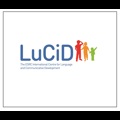
On Tuesday 2nd November at 11am (UK time), Prof Catherine Tamis Le-Monda (NYU Steinhardt) and Dr Catalina Suarez-Rivera (UCL) will talk about Principles of Embodied Language Learning: Active Infants in Structured Physical, Social, and Cultural Environments.
Abstract
What are the developmental principles that guide early word learning? And what must researchers know to advance the science of language learning? In this talk, we begin by presenting four principles of embodied language learning that frame our work: (1) Environments are rich, structured, and characterized by regularities that contain the necessary information for infants to learn; (2) Learning and development unfold in real time as behaviors in one domain cascade to behaviors in another domain, and affect other people and contexts; (3) Infants build knowledge by actively engaging with the world; and (4) Language learning is socially and culturally embedded. We next illustrate how our research is grounded in these principles through a set of studies that highlight rich environments, temporal structure, the active infant, and the social and cultural embeddedness of learning. Study 1 highlights the richness of environmental experiences around language inputs, including how caregivers coordinate multimodal behaviors in time in interactions with infants. Specifically, we show that caregivers jointly engage with the objects of infant action through touch, gesture, language, and physical proximity. Study 2 highlights temporal structure of language interactions, including coordination and entrainment among mother and infant behaviors. Using proximity as a model system, we show that bodies in space alter the language experiences of infants. Study 3 further showcases temporal structure of and entrainment in exchanges between infants and mothers, by showing the tight temporal alignment of mother utterances and infant vocalizations. Study 4 spotlights the active infant, showing how infants’ exuberant play—characterized by immense amounts of interactions with objects in brief varied episodes—reliably elicits tactile and verbal inputs from caregivers in the form of multimodal joint engagement. In turn, as mothers jointly engage, infants’ bouts of play are extended in real time. Study 5 reveals the cascading effects of infant play to multimodal joint engagements to infant word learning, in real-time infant production of words and item-level growth in vocabulary. We close by extending basic principles of language learning to infants and caregivers from different cultural, language, and educational backgrounds, highlighting the robustness of learning principles across communities.
How to join the seminar
Our seminars are free to attend & booking isn't required, just get in touch to request the zoom link or to join the seminar mailing list.

